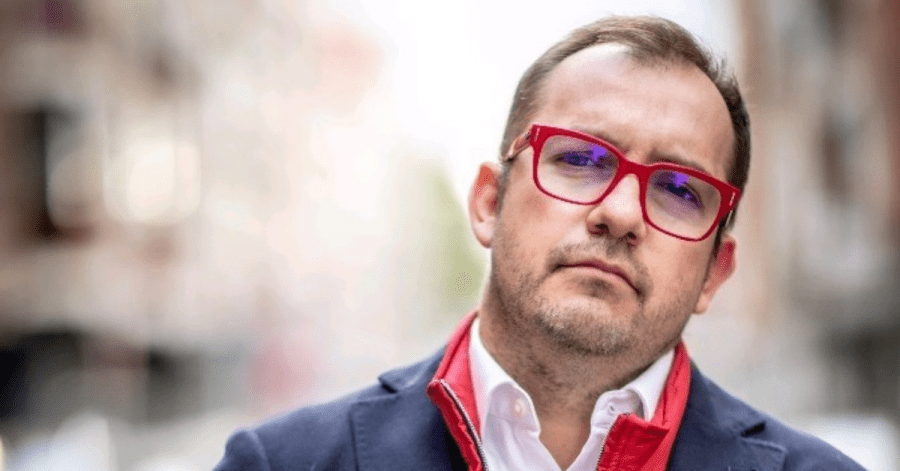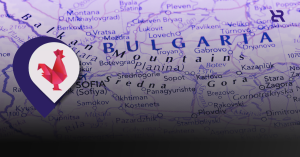Since the beginning of 2022, the SEE ecosystem saw the emergence of 2 unicorns – the Greek neobank VivaWallet which received a strategic investment from JP Morgan, and the Bulgarian expense management platform Payhawk which reached a $1B valuation only a couple of days ago. With these recent developments, the total number of SEE unicorns reaches 7. And even though we might have the feeling that the regional ecosystem is now starting to gain growth momentum, these milestones are a result of years-long joint efforts for inspiring, building, and supporting founders.
To talk about the pillars that set the ground for success in the region, The Recursive met with Cristobal Alonso, the CEO and so-called Energy Master of Startup Wise Guys. He also shared his observations on the early-stage startup scene in SEE, and what he foresees for the future of the region.
Startup Wise Guys, the Estonian-based B2B startup accelerator and early-stage investor, has been on the market for 10 years. Since 2012, it has a total of 275 deals and 266 startups in its portfolio. Out of these, the accelerator has 8 exits, including StepShot that was sold to UiPath, and Vochi that was sold to Pinterest.
Startup Wise Guys has also become the only European accelerator that is present on the ground with multiple physical locations – 3 in the Baltics region, and one in Italy, with plans for a new location in Romania in 2022. The team also operates programs in Copenhagen, and Poland, and will do regular and consistent work across Africa.
Before we dive into the interview, it is important to mention that the 36 of the startups in the portfolio of Startup Wise Guys have Ukrainian founders. During the last week the SWG team has been focusing on helping Ukrainian portfolio founders, their employees and families.
“We have supported several founders’ families with having a place to stay after crossing the borders of Bulgaria, Hungary and Poland. We have created a centralized Notion page with all of the resources (information, border crossing, donations) to support all efforts. We have given full freedom to employees to dedicate as much as they need to support Ukrainian efforts, including stopping all communications from SWG and just focusing on messages to help Ukrainians.
While the focus these initial days is on the well-being of founders and families, we are starting to think about how to help them resume their business activities in the weeks and months to come. For this aim, we are starting to prepare to set 1 or 2 business hubs in the region,” Cristobal Alonso shares with The Recursive.
Here is the link for the Notion platform that the SWG team has created to help Ukrainians with relocating and to provide anyone who is looking to help with country-specific information.
The 10-year growth of the CEE tech scene
Cristobal shares that over the past 10 years within each country from the CEE region there have been different waves of increased innovation, startup successes and investment activity. Overall, the regional environment has transformed from one in which there was not enough capital for angel investments and pre-seed rounds, to a time when the availability of capital can support founders all the way to their Series A and Series B rounds. This also brought about the emergence of competition between investors.
When it comes to angel investors, we need to take a country-specific approach. For example, Estonia and Denmark are locations where the angels are very active and have formed large syndicates which make it possible for founders to raise a pre-seed round entirely from angel investors. Likewise, angel networks have been formed in the CEE and they have gone through some evolution but are still not professional. On the other hand, the Western Balkans region is yet to go though this first phase of developing professional angel networks which can have a big impact on the early-stage startup scene.
On the accelerator side, around the 2010s there was a lot of public money coming and each country set its own accelerators. For example, Eleven Accelerator in Bulgaria and Startup Yard in the Czech Republic. Some of these accelerators slowly moved towards making pre-seed investments. Eleven surpassed that stage to a point where it is now managing a SEE-focused €60M fund.
Mature founders, ambitious ideas, deep tech specialization
“In 2010, around 95% of the time we were working with first-time founders, while in 2022 we are dealing with second and even third-time founders. Therefore, the capabilities of founders overall have evolved. The speed in which they approach problems and the specializations they have, had become very different,” Cristobal Alonso highlights.
He shares that in 2010, around 80% of the founders wanted to be in e-commerce and enterprise software, to a time when now founders aim to have a more deep tech specialization. “We need to become the Germans of building tech products. Made in Eastern Europe should not mean cheap, but excellent. The strength of the region lies in the quality and diversity of the engineering team. We have passed the B2B SaaS vertical and are going into deep tech, sustainability, and other interesting verticals,” Cristobal points out.
Overall, the maturity of the startup team has increased, allowing them to tackle much bigger problems in a deeper way with a potential for more impact and a larger return of investment. Networks and support for founders have become bigger and more regional, allowing multiplication of unicorns.
“To me, it is not a question of size but of a question of momentum when we talk about the multiplication of unicorns. For example, in Romania, UiPath created a movement of innovation, inspiring more startups to launch and more engineering talent to develop. The same impact now awaits Bulgaria,” Cristobal outlines.
The plans of Startup Wise Guys in SEE
Cristobal has already visited Sofia a couple of times since he is the co-author of Perform: The Unsexy Truth about (Startup) Success book together with the Bulgarian productivity coach Stoyan Yankov. In addition, Startup Wise Guys has one portfolio company from Bulgaria – the digital experiences startup SessionStack.
In the CEE region, Startup Wise Guys is running the entrepreneurial upskilling program Jump for CEE with the support of Google for Startups. The program aims to help regional entrepreneurs build their own scalable digital businesses by providing them with access to mentors, ideas, potential team members, and expert industry knowledge. Parallel to that, the accelerator operates its Young Entrepreneurs program which is a 7-day program intended for high school and university students who are interested in finding out what it takes to build a startup.
“The team of Startup Wise Guys plans to run a program physically in Romania this year. In the Western Balkans, and especially in Serbia and Bulgaria, we have been observing a steady movement so we hope to establish 2-3 partnerships with organizations and ecosystem players there. By doing so, we can have the cohort startups participate in the pre-acceleration program online and receive local mentorship. We also hope to establish some partnerships with regional universities and high schools for our Young Entrepreneurs Program,” concludes Cristobal.







